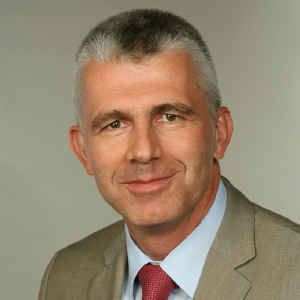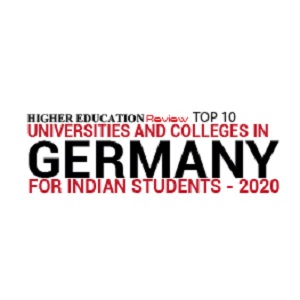
Steinbeis University: Increasing Competitiveness Among Students and The Companies Beyond Pure Knowledge Transfer and Application
By Prof. Dr. Mario Vaupel, Professor for Sustainable Leadership
Germany has always been a nation that pioneers most industrial and technological verticals from the beginning of the century. The products and services offered by the Germans are world-renowned for their innovativeness and quality. This same essence has been filtered down to the education realm of the country. Even before international higher education became a mainstream trend, students from all over the globe have been attracted by the German universities.
Founded in 1998, as a private state-approved University, Steinbeis University is deeply rooted in the German concept of dual education (‘Duale Ausbildung’). Steinbeis University works with the vision to offer excellent study programs and learning solutions for a better transfer of academic knowledge and its application in society. The University’s vision comes to life with the transfer-oriented work of Steinbeis Institutes, one of which is the Institute of Executive Capabilities (Steinbeis IEC). Like all of the other Steinbeis Institutes, Steinbeis IEC enriches students with the unique concept of ‘Project-Competency-Study’ to transfer academic knowledge to work. The study concept supports a combination of scientific foundation and practical application. In Steinbeis IEC, students learn with different approaches on how to transfer the new scientific knowledge they acquired through their study into practice.
Acknowledging the ever-changing industry requirements, Steinbeis University offers courses that are specially designed and developed to be agile and provide ample practical exposure to its students. “Steinbeis University offers academic programs in Business Management, Leadership and Management, Psychology, Health, Engineering, and several other fields. All study programs are based on the concept of ‘Project-Competency-Study.’ During the study programs, students learn how to transfer
academic knowledge to the workplace. Every student has her/his own ‘transfer project’ that helps her/him to organize the transfer-oriented learning process. With these unique concepts, the students learn to make academic knowledge productive, and they develop their expertise in their fields of interest”, speaks Prof. Dr. Mario Vaupel, Professor for Sustainable Leadership, Steinbeis University.
Understanding the quality of practical education offered by the Institute, the majority of the Indian students enroll in M.A. Business and Organizational Psychology at Steinbeis IEC. This program includes modules such as Psychology of Change Management, Organizational Psychology, and Market Psychology that help students to have a deep understanding of the inner workings of a business, and they will also learn to lead an organization to success.
Steinbeis IEC is international and multicultural, with 56 different nations represented in its student body. Students not only learn something about German culture, but they also learn to work with others from around the world. Furthermore, students get the opportunity to define and develop their field of expertise and professionalize their knowledge and competencies.
Adding about the study scenario of international students in the Institute, Prof. Dr. Vaupel avers, “Steinbeis IEC offers international study programs in Business and Organizational Psychology (conducted in English), Business Administration (conducted in German) and Business Management (conducted in German). Our international study programs provide a diverse, multinational, and multicultural environment for students, which can be beneficial for them in preparing themselves to enter the global workforce. The campus is located in Berlin, which is the most popular capital city in Europe. Additionally, the IEC is a part of Steinbeis University - the largest Private University in Germany, approved and recognized by the German State. The University has a decentralized structure and is strongly linked to the German and international industries.”
The role of the educators at Steinbeis IEC is strongly linked to the study concept. The lecturers
also act as coaches for the transfer projects of students. They facilitate students to perform in the project study areas. Another role of the lecturers is to students intensive feedback on their papers written during the study program. Since the students study in groups of 15-20, they quickly develop their network and team spirit. In addition to this, personal care and attention offered by the faculty to the students, so they can easily speak with members of the Institute to receive support for their study program and the transition to living abroad.
Adding further about what German universities expect from the students, Prof. Dr. Vaupel shares, “The study concept in Europe and especially in Germany is somewhat different from other parts of the world. Students should expect to have a high degree of autonomy, and on the other hand, they will be primarily responsible for organizing their learning process. To perform in this particular learning environment, students will receive sufficient support from the Institute as well as their individual coach to adapt to the German education system.”
The efforts and attention to the detail put in by Steinbeis University and its Institutes have helped them develop into a reputed name in the global education market. Steinbeis has also created a global alumni network that has further helped the institution to cement its position as a premier higher education institute. Steinbeis University has grown consistently since its inception in 1998, and now the Institute educates 8300 students on 23 different locations in Germany.
Prof. Dr. Vaupel is also the Director of the Institute of Executive Capabilities. He is a former member of the Board of the European Foundation for Management Development and the Co-Founder of the European Corporate Learning Forum (ECLF). He has got decades of industry experience working in various verticals, and he has also worked in top roles in elite organizations.
Founded in 1998, as a private state-approved University, Steinbeis University is deeply rooted in the German concept of dual education (‘Duale Ausbildung’). Steinbeis University works with the vision to offer excellent study programs and learning solutions for a better transfer of academic knowledge and its application in society. The University’s vision comes to life with the transfer-oriented work of Steinbeis Institutes, one of which is the Institute of Executive Capabilities (Steinbeis IEC). Like all of the other Steinbeis Institutes, Steinbeis IEC enriches students with the unique concept of ‘Project-Competency-Study’ to transfer academic knowledge to work. The study concept supports a combination of scientific foundation and practical application. In Steinbeis IEC, students learn with different approaches on how to transfer the new scientific knowledge they acquired through their study into practice.
Practice-Oriented Education
Acknowledging the ever-changing industry requirements, Steinbeis University offers courses that are specially designed and developed to be agile and provide ample practical exposure to its students. “Steinbeis University offers academic programs in Business Management, Leadership and Management, Psychology, Health, Engineering, and several other fields. All study programs are based on the concept of ‘Project-Competency-Study.’ During the study programs, students learn how to transfer
academic knowledge to the workplace. Every student has her/his own ‘transfer project’ that helps her/him to organize the transfer-oriented learning process. With these unique concepts, the students learn to make academic knowledge productive, and they develop their expertise in their fields of interest”, speaks Prof. Dr. Mario Vaupel, Professor for Sustainable Leadership, Steinbeis University.
Understanding the quality of practical education offered by the Institute, the majority of the Indian students enroll in M.A. Business and Organizational Psychology at Steinbeis IEC. This program includes modules such as Psychology of Change Management, Organizational Psychology, and Market Psychology that help students to have a deep understanding of the inner workings of a business, and they will also learn to lead an organization to success.
Steinbeis IEC is international and multicultural, with 56 different nations represented in its student body. Students not only learn something about German culture, but they also learn to work with others from around the world. Furthermore, students get the opportunity to define and develop their field of expertise and professionalize their knowledge and competencies.
Adding about the study scenario of international students in the Institute, Prof. Dr. Vaupel avers, “Steinbeis IEC offers international study programs in Business and Organizational Psychology (conducted in English), Business Administration (conducted in German) and Business Management (conducted in German). Our international study programs provide a diverse, multinational, and multicultural environment for students, which can be beneficial for them in preparing themselves to enter the global workforce. The campus is located in Berlin, which is the most popular capital city in Europe. Additionally, the IEC is a part of Steinbeis University - the largest Private University in Germany, approved and recognized by the German State. The University has a decentralized structure and is strongly linked to the German and international industries.”
Creating the Perfect Learning Platform
The role of the educators at Steinbeis IEC is strongly linked to the study concept. The lecturers
also act as coaches for the transfer projects of students. They facilitate students to perform in the project study areas. Another role of the lecturers is to students intensive feedback on their papers written during the study program. Since the students study in groups of 15-20, they quickly develop their network and team spirit. In addition to this, personal care and attention offered by the faculty to the students, so they can easily speak with members of the Institute to receive support for their study program and the transition to living abroad.
Adding further about what German universities expect from the students, Prof. Dr. Vaupel shares, “The study concept in Europe and especially in Germany is somewhat different from other parts of the world. Students should expect to have a high degree of autonomy, and on the other hand, they will be primarily responsible for organizing their learning process. To perform in this particular learning environment, students will receive sufficient support from the Institute as well as their individual coach to adapt to the German education system.”
"The efforts and attention to the detail put in by Steinbeis University and its Institutes have helped them develop into a reputed name in the global education market"
The efforts and attention to the detail put in by Steinbeis University and its Institutes have helped them develop into a reputed name in the global education market. Steinbeis has also created a global alumni network that has further helped the institution to cement its position as a premier higher education institute. Steinbeis University has grown consistently since its inception in 1998, and now the Institute educates 8300 students on 23 different locations in Germany.
Prof. Dr. Mario Vaupel, Professor for Sustainable Leadership
Prof. Dr. Vaupel is also the Director of the Institute of Executive Capabilities. He is a former member of the Board of the European Foundation for Management Development and the Co-Founder of the European Corporate Learning Forum (ECLF). He has got decades of industry experience working in various verticals, and he has also worked in top roles in elite organizations.

